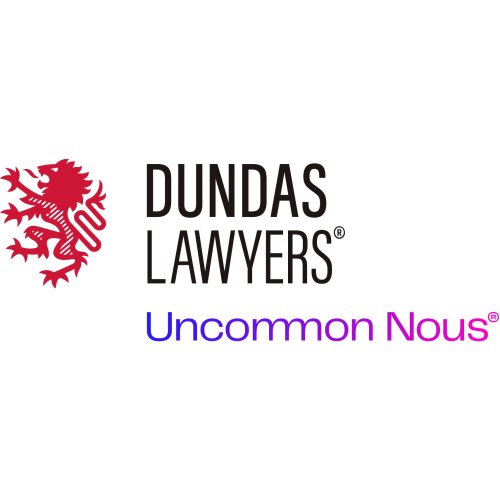Best Technology Transactions Lawyers in Australia
Share your needs with us, get contacted by law firms.
Free. Takes 2 min.
Or refine your search by selecting a city:
List of the best lawyers in Australia
About Technology Transactions Law in Australia
Technology Transactions Law in Australia encompasses a variety of legal practices focused on the commercial aspects of technology development, transfer, and use. This field involves drafting, negotiating, and managing agreements related to software licensing, cloud services, technology outsourcing, data protection, and emerging technologies. These transactions are essential for organizations to capitalize on technological advancements while mitigating risks.
Why You May Need a Lawyer
Engaging with technology transactions often involves complex legal considerations. You may need a lawyer when entering into technology contracts to ensure your intellectual property is protected, compliance with data protection laws is maintained, and terms are favorable for your business operations. Additionally, legal counsel is beneficial for negotiating terms in technology outsourcing agreements, licensing intellectual property, or resolving disputes related to technology use and implementation.
Local Laws Overview
Australia's legal framework for technology transactions includes intellectual property laws, such as the Copyright Act 1968 and the Patents Act 1990, which govern the protection and licensing of technology-related IP. The Privacy Act 1988 regulates data protection, ensuring compliance with privacy principles. There's also significant consideration given to competition laws under the Competition and Consumer Act 2010 to prevent anti-competitive practices. Additionally, contract law plays a vital role in shaping the agreements governing technology transactions.
Frequently Asked Questions
What is a technology transfer agreement?
A technology transfer agreement is a contract where the owner of a technology allows another party to use, modify, or commercialize it under specified terms.
Why is intellectual property important in technology transactions?
Intellectual property (IP) is crucial because it protects innovations and provides competitive advantages. Licensing IP can be a significant revenue source in technology transactions.
What should be included in a software licensing agreement?
Key elements include scope of use, licensing fees, warranties and liabilities, support and maintenance terms, and intellectual property rights.
What are common risks in outsourcing technology services?
Common risks include data security breaches, loss of control over IP, service reliance on third-party providers, and potential compliance issues.
How does the Privacy Act 1988 affect technology transactions?
The Privacy Act 1988 mandates that personal information is handled with transparency, security, and legal compliance, impacting how data is managed in transactions.
What are the benefits of cloud service agreements?
Cloud service agreements can provide cost efficiency, scalability, and enhanced data management capabilities but require careful attention to terms regarding data ownership and security.
How can I resolve a dispute in technology transactions?
Disputes can often be resolved through negotiation or mediation. If unresolved, arbitration or legal proceedings may be necessary depending on the contract terms.
What are emerging technologies impacting transactions?
Emerging technologies like AI, blockchain, and IoT are profoundly shaping transactions through their potential uses, regulatory challenges, and market impact.
What is the role of a technology transaction lawyer?
A technology transaction lawyer facilitates negotiations, drafts agreements, ensures compliance with legal standards, and advises on risk management and dispute resolution.
How do data protection laws impact international technology transactions?
Data protection laws can complicate international transactions by imposing requirements for data transfers, necessitating agreements that adhere to multi-jurisdictional compliance standards.
Additional Resources
For further assistance in technology transactions, consider consulting resources such as the Australian Competition and Consumer Commission (ACCC), the Australian Privacy Commissioner, and IP Australia. Professional organizations like the Law Council of Australia and the Australian Computer Society provide valuable information and networking opportunities.
Next Steps
If you require legal assistance in technology transactions, begin by evaluating your specific needs and potential risks. Seek out lawyers or firms specializing in technology law by researching their qualifications, industry experience, and client testimonials. Consider scheduling consultations to discuss your case and obtain legal advice tailored to your situation. Engaging with a lawyer early in the transaction process can ensure your interests are protected and compliance is maintained.
Lawzana helps you find the best lawyers and law firms in Australia through a curated and pre-screened list of qualified legal professionals. Our platform offers rankings and detailed profiles of attorneys and law firms, allowing you to compare based on practice areas, including Technology Transactions, experience, and client feedback.
Each profile includes a description of the firm's areas of practice, client reviews, team members and partners, year of establishment, spoken languages, office locations, contact information, social media presence, and any published articles or resources. Most firms on our platform speak English and are experienced in both local and international legal matters.
Get a quote from top-rated law firms in Australia — quickly, securely, and without unnecessary hassle.
Disclaimer:
The information provided on this page is for general informational purposes only and does not constitute legal advice. While we strive to ensure the accuracy and relevance of the content, legal information may change over time, and interpretations of the law can vary. You should always consult with a qualified legal professional for advice specific to your situation.
We disclaim all liability for actions taken or not taken based on the content of this page. If you believe any information is incorrect or outdated, please contact us, and we will review and update it where appropriate.
Browse technology transactions law firms by city in Australia
Refine your search by selecting a city.








